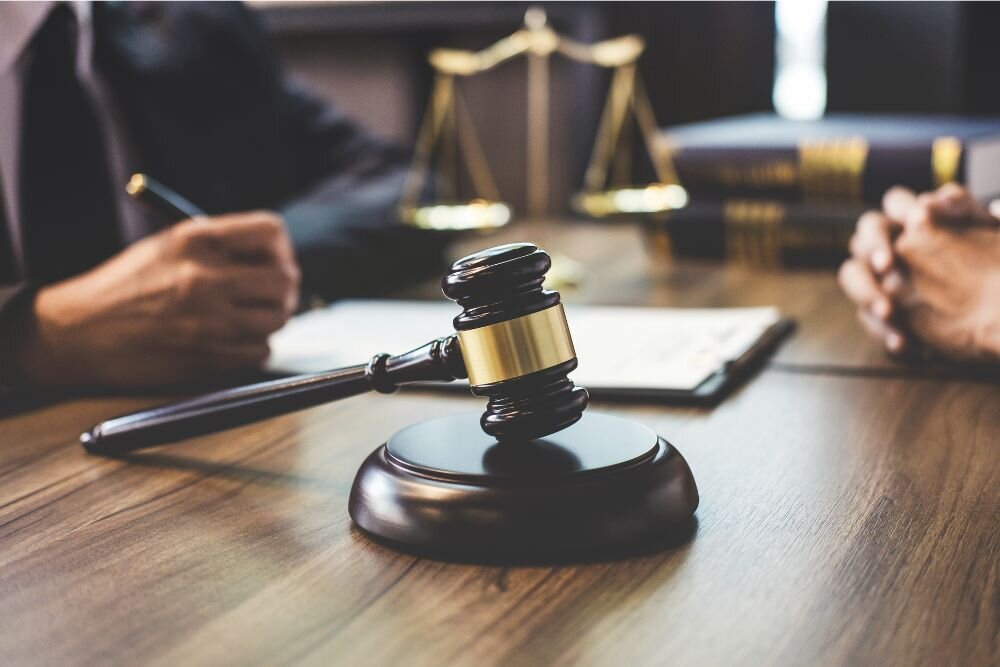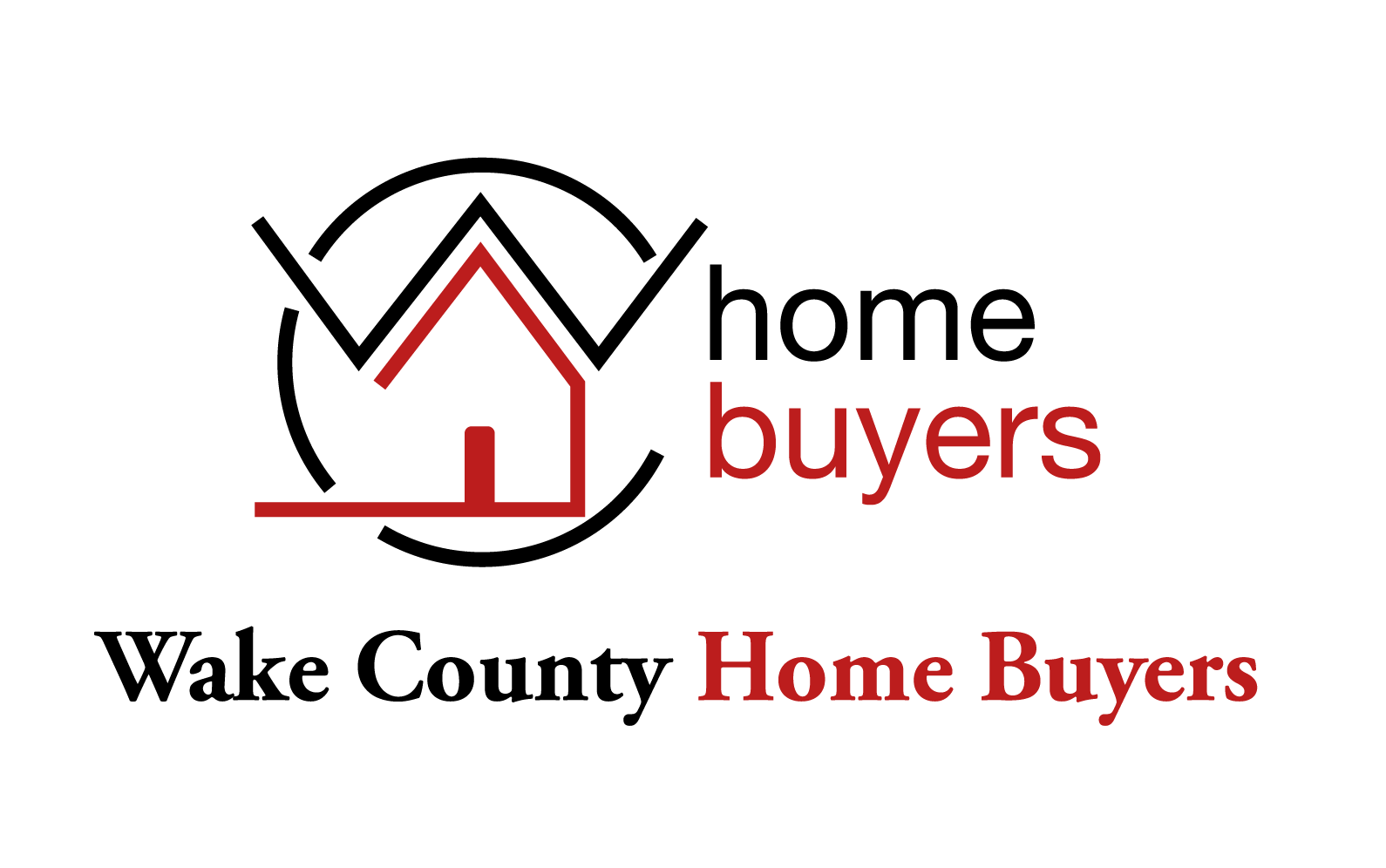Important Considerations When Buying a Home Within an Hoa
When buying a home in North Carolina that is part of a homeowners association (HOA), it’s important to know what the HOA foreclosure rules mean and how they can affect property ownership. People who want to buy a home should know that homeowners associations (HOAs) can charge fees and assessments, which can become liens on the land if they are not paid.
In North Carolina, these liens can sometimes result in foreclosure actions by the HOA to recover overdue payments.People who want to buy a home should carefully read the HOA’s governing papers, such as the covenants, conditions, and restrictions (CC&Rs) and any rules about assessments and fines.
Understanding these documents will help buyers comprehend their financial obligations and legal responsibilities within the community. Additionally, potential homeowners should consider attending HOA meetings or speaking with current residents to gain insight into how stringent or lenient the association is in enforcing its rules and regulations.
Being informed about the specific foreclosure process in North Carolina is essential since state laws dictate how an HOA may proceed with foreclosing on a property due to unpaid dues or special assessments. Buyers should also factor in the stability and financial health of the HOA itself, as this can affect future assessment increases or additional charges that could impact their ability to maintain good standing with the association.
Understanding Homeowners Associations: Roles and Responsibilities
In North Carolina, homeowner associations (HOAs) are essential to preserving the standard and worth of residential communities by upholding laws and ordinances that support the preservation of community peace and aesthetics. In order to keep common facilities like parks, pool areas, and clubhouses clean and open to all residents, these groups are in charge of their management.
Additionally, homeowners’ associations (HOAs) levy dues to finance common area improvements and upkeep. Also, in an effort to make everyone feel more at home in the neighborhood, they set standards for things like required gardening and exterior paint colors.
However, understanding the responsibilities of an HOA is essential because non-compliance with its covenants can lead to disputes or even foreclosure proceedings if dues remain unpaid. HOAs have the authority to impose fines or place liens on properties for violations or delinquent payments, highlighting the importance of knowing your rights and obligations as a homeowner within an association-managed community.
Understanding Cc&rs (covenants, Conditions, and Restrictions) in Hoas

Covenants, Conditions, and Restrictions (CC&Rs) are foundational legal documents that govern homeowners associations (HOAs) in North Carolina. Understanding these CC&Rs is crucial for homeowners as they outline the rules and regulations that each property owner must abide by within the community.
These regulatory documents cover architectural guidelines, maintenance, use restrictions, and assessment. HOA fines and other penalties might result from CC&R violations.
Moreover, persistent non-compliance may escalate to more severe actions, such as foreclosure proceedings. While HOAs are designed to maintain property values and community standards, it’s essential for homeowners to thoroughly review their specific CC&Rs to fully understand their rights and responsibilities.
Especially in North Carolina, following these covenants is crucial since a HOA can use several legal tools to enforce its policies, hence ignoring them could produce conflicts or financial responsibilities.
Navigating Hoa Rules and Regulations in Your Community
Navigating the rules and regulations of a Homeowners Association (HOA) in North Carolina requires a clear understanding of how these governing bodies can enforce their covenants, especially regarding foreclosure actions. Though neglecting to pay these fees could have serious repercussions under North Carolina law, HOAs are authorized to charge residents for community upkeep and enhancements.
It’s crucial for homeowners to familiarize themselves with the specific bylaws and declarations of their HOA, as these documents outline the association’s authority and the homeowner’s obligations. It is important to be educated about payment schedules and dispute resolution options in your community. In North Carolina, a HOA may commence foreclosure proceedings if dues remain unpaid.
Moreover, understanding state-specific statutes that regulate HOA powers helps homeowners protect their rights while ensuring compliance with local governance structures. Residents who actively participate in HOA meetings and communications can more easily negotiate possible issues connected to fines or liens that might develop into foreclosure concerns.
North Carolina Real Estate Laws Governing Hoas
North Carolina real estate laws governing Homeowners Associations (HOAs) provide a comprehensive framework for managing community living while protecting homeowners’ rights. These laws outline the powers and responsibilities of HOAs, including their ability to enforce covenants, collect dues, and maintain common areas.
In North Carolina, HOAs are legal entities with the authority to impose fines and initiate foreclosure proceedings if dues remain unpaid. However, state statutes require that certain procedures be followed before an HOA can foreclose on a property.
The foreclosure process is strictly regulated to ensure fairness and transparency, involving steps like issuing proper notices and allowing homeowners opportunities to resolve payment delinquencies. Additionally, North Carolina law mandates that HOAs adhere to their governing documents and applicable state regulations when exercising their powers.
To avoid misunderstandings, maintain community standards, and protect individual property rights, it is essential that homeowners and HOA boards have a firm grasp of these real estate laws.
The Role of the Hoa Board: Powers and Limitations in North Carolina
In North Carolina, the Homeowners Association (HOA) board plays a crucial role in managing community affairs, but its powers and limitations are clearly defined by state laws. The HOA board has the authority to enforce community rules, collect dues, and manage common areas.
However, these powers are accompanied by specific limitations to ensure fairness and transparency. North Carolina law mandates that HOA boards must adhere to governing documents such as covenants, conditions, and restrictions (CC&Rs), as well as bylaws that outline their responsibilities and procedures.
Although the board can start foreclosure on a property for unpaid assessments, this action is governed by rigorous legal standards meant to safeguard homeowners’ rights. Before moving forward with foreclosure measures, boards have to give appropriate notice and follow due process.
Additionally, North Carolina’s Planned Community Act requires associations to conduct open meetings, allowing homeowners insight into the decision-making processes. This ensures that while HOA boards have significant authority in managing community operations, they operate within a framework of accountability and legal oversight designed to balance their power with homeowner protections.
Financial Obligations of Homeowners to Hoas in North Carolina
In North Carolina, homeowners within a Homeowners Association (HOA) have specific financial obligations that are crucial to understand to avoid potential foreclosure. Homeowners are required to pay regular assessments, which can include monthly or annual HOA fees, to cover the maintenance and management of common areas and community amenities.
Special assessments may also be needed for repairs or improvements that come up out of the blue and cost more than the usual dues. North Carolina law makes it very important for homeowners to keep up with these payments. If they don’t, they could face serious penalties.
The HOA is allowed by law to put a lien on a property for unpaid dues. If the homeowner doesn’t pay, the situation could get worse and lead to foreclosure. Because of this, residents need to be aware of their payment obligations and talk to their HOA ahead of time if they run into money problems. This is because HOAs usually have rules that allow payment plans or other arrangements to stop eviction actions.
Impact of Unpaid Dues on Homeownership in an Hoa Community
In North Carolina, homeowners in HOA communities must be vigilant about the impact of unpaid dues on their homeownership status. When a homeowner fails to pay their HOA dues, the association has the legal right to initiate foreclosure proceedings, which could ultimately lead to losing their home.
State law and the community’s governing laws serve as the foundation for a HOA’s ability to file a claim and foreclose. Interest and late fees can exacerbate the debt load, and unpaid balances can mount up rapidly.
Homeowners aren’t the only ones feeling the pinch; communal property values could take a hit and funds for upkeep and amenities could dry up as a result. While HOAs do their best to help members who are having financial issues, homeowners should be aware that long-term nonpayment can lead to major repercussions.
Being proactive about communication with the HOA and seeking possible payment plans or assistance options can mitigate the risk of foreclosure due to unpaid dues in North Carolina’s HOA communities.
Legal Protections for Homeowners Against Hoa Actions in North Carolina

Homeowners in North Carolina have a number of law protections against Homeowners Association (HOA) foreclosure actions. These protect their property rights. Laws in the state require HOAs to follow certain steps before starting the foreclosure process. This makes sure that homeowners are given enough warning and a chance to pay their past due fees.
Under North Carolina statutes, an HOA must provide a written notice of delinquency and allow homeowners the chance to rectify any overdue assessments. Additionally, the law mandates that any foreclosure action be judicial, meaning it must go through the court system, providing a layer of oversight and protection for the homeowner.
This provision lets homeowners argue their case before a court and maybe contest HOA assertions. Moreover, North Carolina law reduces the authority of HOAs by forbidding their foreclosure just on outstanding penalties or fees unrelated to common expense evaluations.
Legal frameworks such as these empower homeowners with avenues for negotiation or settlement and help prevent arbitrary loss of property due to HOA enforcement measures.
How to Protect Your Rights as a Homeowner Under North Carolina Law
To protect your rights as a homeowner under North Carolina law, it’s crucial to understand the intricacies of homeowners association (HOA) foreclosure procedures. First, familiarize yourself with the specific covenants, conditions, and restrictions outlined in your HOA agreement, as these documents often contain vital information about dues and assessments.
If you receive a notice of delinquency, respond promptly to avoid escalation. North Carolina law mandates that an HOA must follow a judicial foreclosure process if they decide to pursue foreclosure for unpaid dues, which means the case is taken to court.
At this point, homeowners might choose to fight the foreclosure or work out a payment arrangement. If you need advice on how to approach these negotiations or want to know how to stop proceedings, a lawyer is a good choice.
Additionally, keeping comprehensive records of all communications with the HOA can serve as evidence if disputes arise. Understanding state laws regarding consumer protection and debt collection practices can also empower homeowners against aggressive tactics sometimes employed by HOAs or their management companies.
By staying informed and proactive about your rights and obligations, you can better safeguard your home from potential foreclosure actions initiated by an HOA in North Carolina.
The Consequences of Ignoring Hoa Notices and Warnings
In North Carolina, disregarding HOA warnings and letters can have serious repercussions, including the possibility of foreclosure. The power to enforce their regulations and collect dues is vested in homeowners’ associations (HOAs), who may also impose fines or penalties for noncompliance.
If these dues and fines remain unpaid, the HOA can place a lien on the property. A lien serves as a legal claim against your home, making it difficult to sell or refinance.
In North Carolina, homeowners associations have the right to start foreclosure procedures in order to recoup the debt if it keeps growing without being paid off. This implies that residents may have to vacate their residences in order to pay off unpaid HOA fees.
It’s crucial for property owners in North Carolina to understand that ignoring these notices doesn’t make them disappear; rather, it escalates the situation by increasing financial liabilities and jeopardizing homeownership. To avoid such extreme steps and protect your rights as a homeowner, you must swiftly respond to any correspondence from your HOA regarding delinquent dues or violations.
Can a Hoa Take Your Home in North Carolina?
In North Carolina, a homeowners association (HOA) has the legal authority to initiate foreclosure proceedings under certain conditions, potentially resulting in the loss of your home. The process typically begins when a homeowner fails to pay HOA assessments or dues.
North Carolina law allows the HOA to attach the property should these overdue payments stay unpaid. Should the loan stay unpaid, the HOA could foreclose to collect the due sum.
Homeowners should be aware that HOAs are subject to state-specific laws that control foreclosure proceedings. Before a foreclosure sale is held, homeowners must be given notice and the chance to resolve their debts.
However, once initiated, an HOA foreclosure can lead to the forced sale of a property, emphasizing the necessity for homeowners to address overdue payments promptly and seek legal advice if they are facing potential foreclosure by their HOA in North Carolina.
How Much Power Do Hoas Have in North Carolina?
In North Carolina, homeowners associations (HOAs) wield significant power over properties within their jurisdictions, particularly when it comes to enforcing community rules and regulations. HOAs in North Carolina have the authority to impose fines, levy assessments, and place liens on properties for unpaid dues or violations of covenants.
If these financial obligations remain unmet, the HOA can initiate foreclosure proceedings against the homeowner. The foreclosure process is governed by specific state laws that provide HOAs with the ability to enforce lien rights through judicial or non-judicial foreclosure methods.
This means that under certain circumstances, an HOA can legally take possession of a home if dues are significantly delinquent. Homeowners should be aware of the substantial power HOAs hold and understand their rights and responsibilities under North Carolina law to prevent potential foreclosure actions.
It is crucial for residents to communicate proactively with their HOA and seek legal advice if they face difficulties in meeting their financial commitments or if they believe the HOA is overstepping its bounds in enforcing community standards.
Can an Hoa Evict a Homeowner in Nc?
Associations of North Carolina homeowners (HOAs) can collect dues and enforce rules, but they can’t remove homeowners. If a homeowner does not pay their assessments or dues, the HOA can start foreclosure procedures under North Carolina law.
However, this does not mean the HOA can directly evict the homeowner like a landlord might with a tenant. Instead, the HOA must follow specific legal procedures to foreclose on the property.
In this procedure, a claim of lien is filed, the homeowner is notified of any payments that are overdue, and a judgment for foreclosure may be obtained through court filings. If the process is approved, the debts can be settled by selling the property at auction.
It’s important for homeowners in North Carolina to understand these foreclosure laws and seek legal advice if they face potential action from their HOA. Awareness of these regulations can help prevent losing one’s home due to unpaid dues or fees levied by an HOA.
What Are the Powers of the Hoa in NC?

Homeowners Associations (HOAs) in North Carolina possess significant powers that can impact property owners, particularly concerning HOA foreclosure laws. In North Carolina, HOAs have the authority to enforce covenants, conditions, and restrictions (CC&Rs) outlined in their governing documents.
This includes the ability to levy fines for rule violations, impose special assessments for community projects, and collect regular dues from homeowners. If a homeowner fails to pay these dues or assessments, the HOA may place a lien on the property as a method of debt collection.
Under certain circumstances, this lien can lead to foreclosure proceedings if the debt remains unpaid. It is crucial for homeowners in North Carolina to understand that while HOAs have the power to initiate foreclosure through judicial processes, they must adhere strictly to state laws governing such actions.
This includes providing proper notice to homeowners and offering opportunities for payment or dispute resolution before proceeding with foreclosure. Understanding these powers not only helps homeowners comply with their obligations but also empowers them to protect their property rights under North Carolina’s legal framework.
Helpful North Carolina Blog Articles
- Can You Sell A House With A Mortgage In North Carolina
- Can You Sell a Rental with Tenants in North Carolina?
- How Long to Move Out After Foreclosure Auction in North Carolina
- North Carolina Quitclaim Deed
- How to Sell a Hoarder House in North Carolina
- How to Sell a House With Code Violation in North Carolina
- Selling a House Without a Realtor in North Carolina
- Selling a House With Water Damage in North Carolina
- Squatter’s Rights in North Carolina
- What Taxes Do I Have to Pay When I Sell My House in North Carolina?
- Who Pays Closing Costs When Selling a House in North Carolina
- North Carolina HOA Foreclosure Laws
- Selling a House in North Carolina During an Ongoing Lawsuit

| INBOX | NORTH CAROLINA PLANNED COMMUNITY ACT | ATTORNEYS | CONDOS | CONDOMINIUM | |
| CONDOMINIUM ASSOCIATION | DEBT COLLECTORS | ATTORNEYS’ FEES | ATTORNEY’S FEES | EXPENSES | LEGISLATION |
| LITIGATION | LAWSUIT | LEGAL ACTION | GOOD FAITH | SOUTH CAROLINA | DEBTORS |
| RESTRICTIVE COVENANTS | ARTICLES OF INCORPORATION | TAXES | NONPROFITS | MORTGAGES | MORTGAGE LENDER |
| MONEY | CORPORATION | ACCOUNTING |

